Introducing Gravity Connect: Airtable
Airtable + Gravity Forms = Hyper-customizable databases and no-code building features for your data.
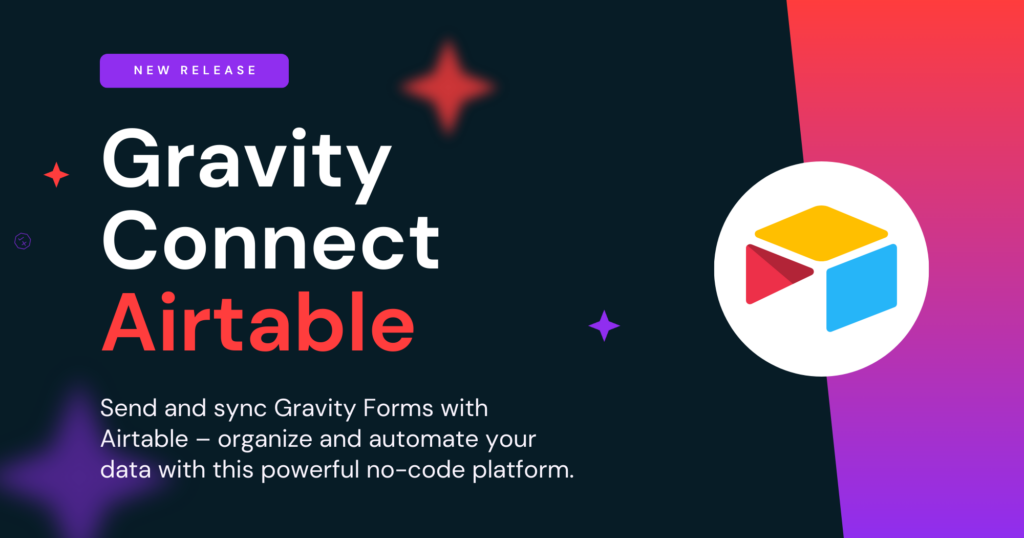
Our newest suite, Gravity Connect, is out and on a mission to connect Gravity Forms to the most popular services in the world. After launching with the resounding “Bang!” of three banger connections—Notion, OpenAI, Google Sheets—the winds of fate kept blowing.
“Airtableeee…” it whispered.
Intrigued, we began to explore this new magic. The more we looked into it, the clearer it became why wizards everywhere were filling the air with a wish. A wish to have a simple way to send entry data from a super customizable form builder like Gravity Forms to the super customizable Airtable.
Airtable starts with a spreadsheet layout, but underneath it all lies a dynamic relational database. The best part? It’s all no-code. Teams can collaborate and create powerful apps tailored to their unique needs, no matter if they’re project management, event tracking, CRMs or a 3D space builder!
And now, my beloved wizards, it’s time to unlock this new door of magic together. With excitement in the air, we proudly present Gravity Connect Airtable. 🌬️
Let’s breeze through Gravity Connect Airtable
Once your Airtable base is ready, take a breather—this integration handles the heavy lifting for you. GCA connects Gravity Forms to Airtable, sending entry data through to be structured and put to use.
Air-tight connection
Setting up this Connection is a breeze. Not to mention, what goes around comes back around in the Connection world. Airtable records are automatically updated in real-time with your entries, ensuring data is accurate at all times — critical for time-sensitive data and secondary integrations.
Power your most unique workflows
If you are using Gravity Forms and want to leverage your form data, you can easily map your form fields to Airtable fields. From there, GCA creates records (Airtable entries) of submitted form data automatically.
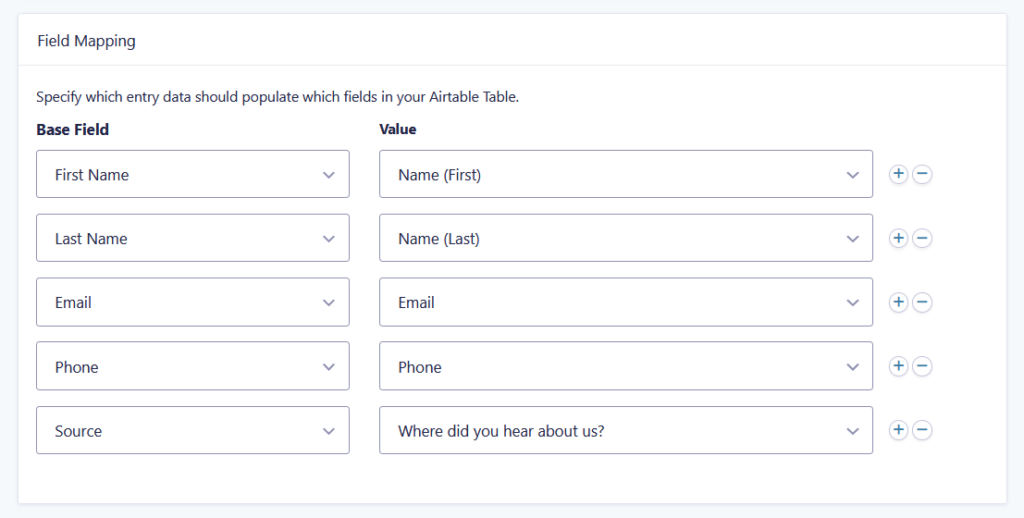
You can set up multiple feeds to send your data to the table it fits most, be it any new entry or only if the entry meets certain conditions—like sending customer info to a “High Value Leads” table only if their total purchase exceeds a certain amount.
With Airtable’s intuitive automations, multiple view types, and extensive extension library, your team can visualize data, build custom dashboards, and connect the dots—all without ever having to log into WordPress.
A breath of fresh air
The Airtable Connection is powered by the Gravity Connect framework, making it both light as a breeze and powerful as a gust. What sets it apart (besides our magic touch 🪄) is that, unlike other popular integration and automation tools, Gravity Connect doesn’t charge you based on data usage – its life mission is to let you send and sync with reckless abandon!
Feeling blown away?
The sky’s the limit when building apps with Airtable, and your Gravity Forms data could be just the space fuel your apps need to go to the Moon!
We can’t wait to see where your creations go next with GC Airtable: now available in the Gravity Connect license nearest to you. 😉
PS—Black Magic (aka Black Friday) is coming this Monday! Licenses for all suites will drop up to 50% until December 3rd.

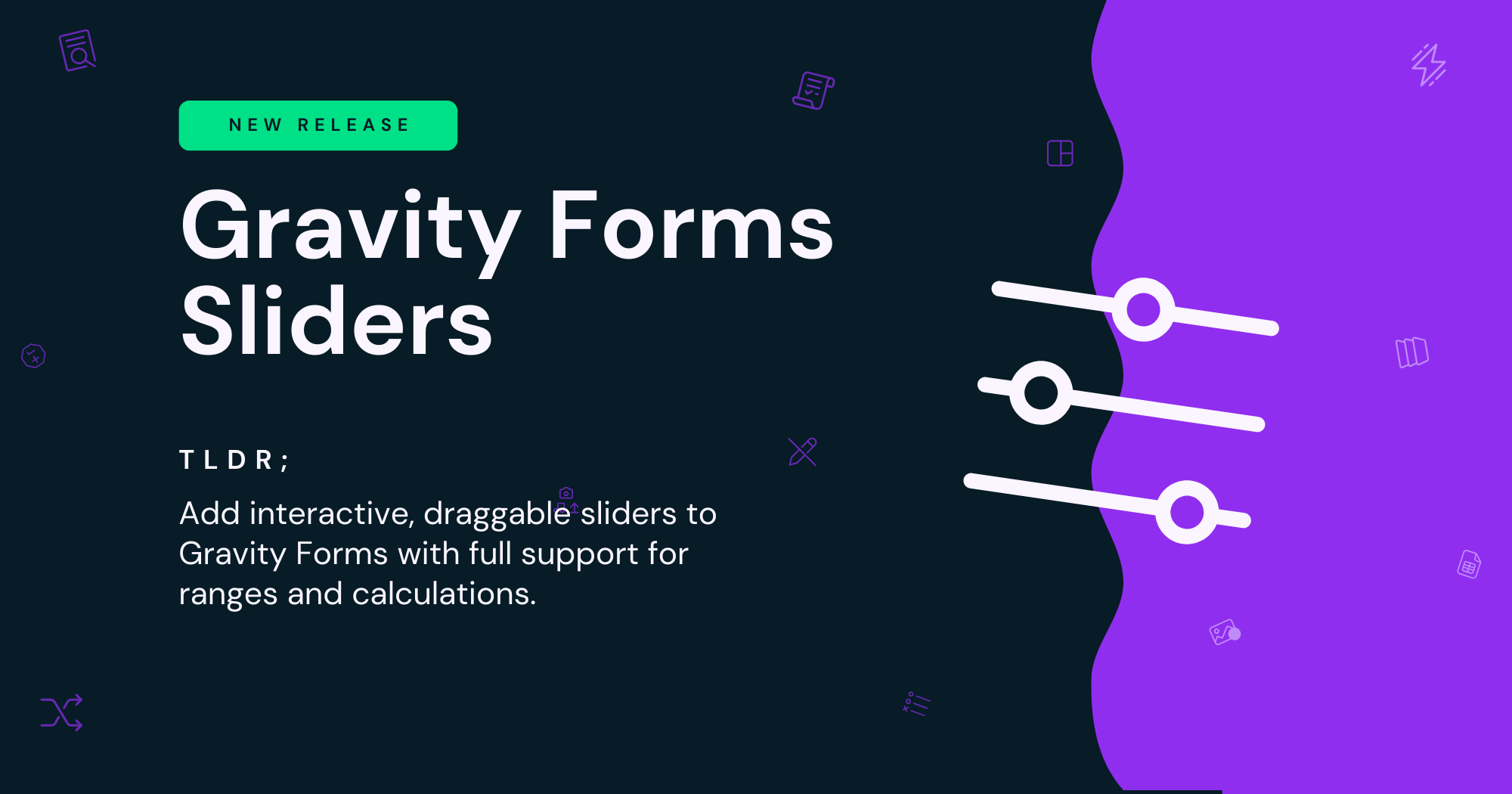
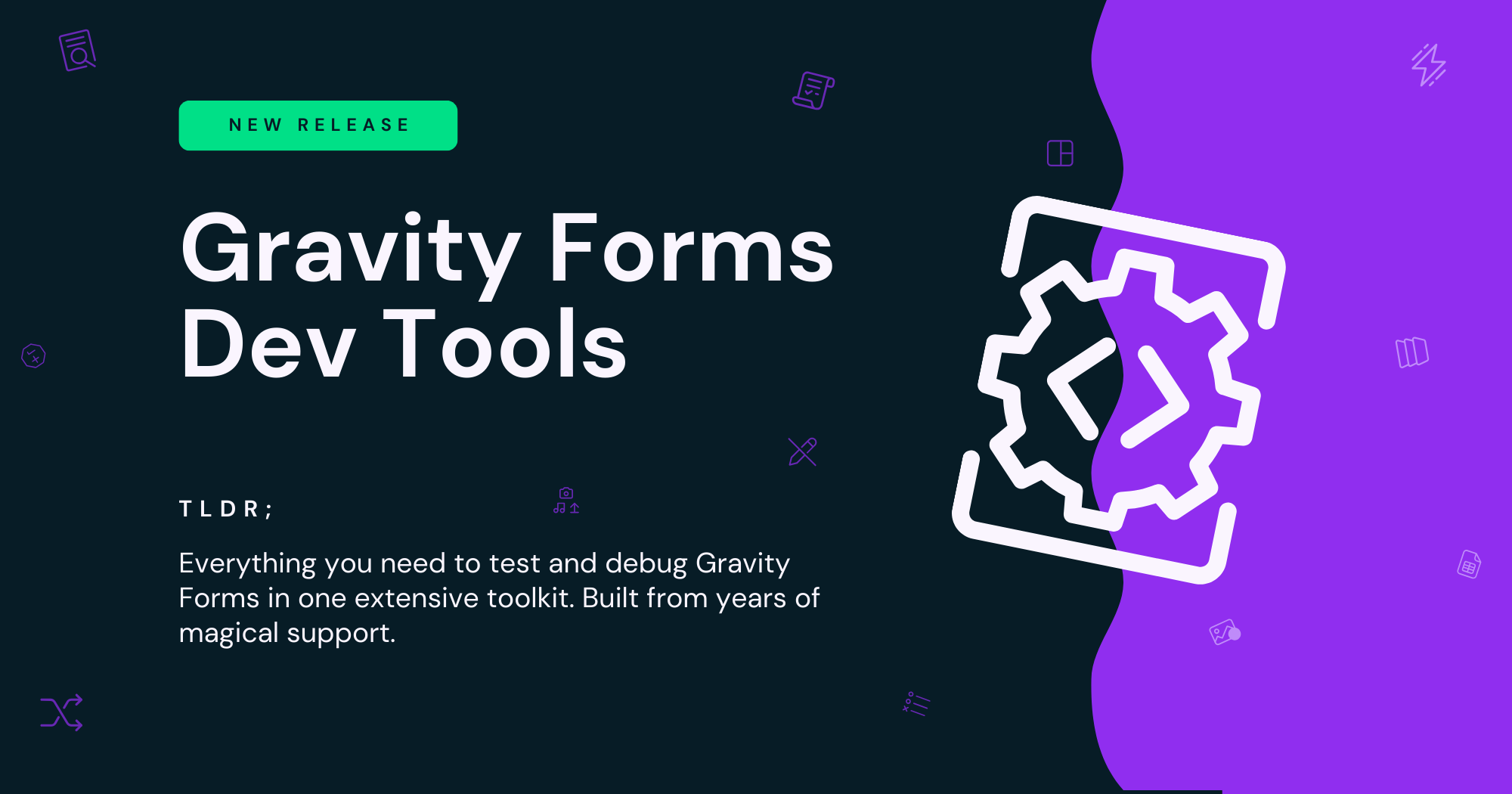
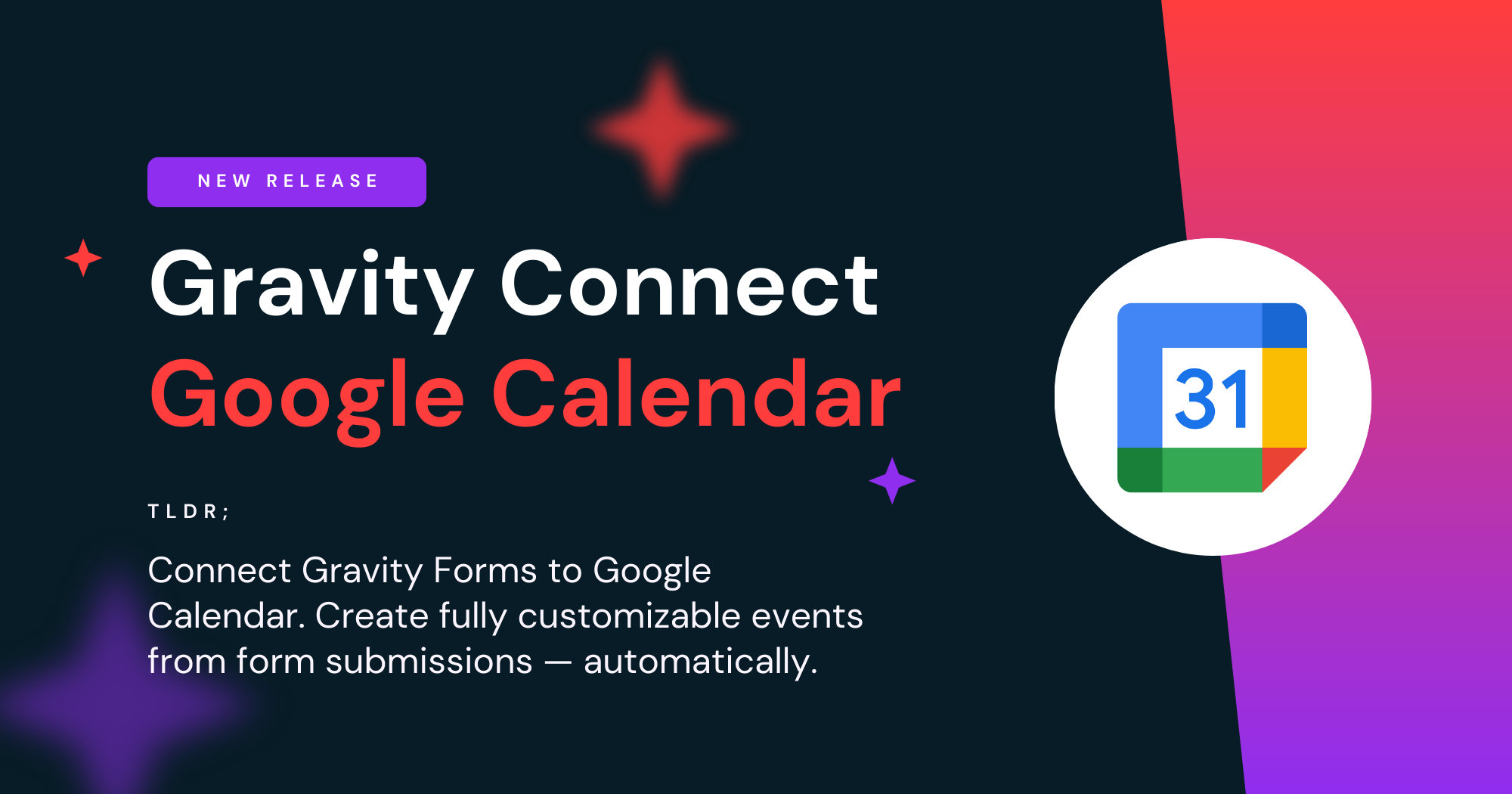
After having hand-coded a Gravity Forms to AirTable connector myself, this looks amazing. One question I have is, can one form write data to multiple tables?
For example, I have a Contact table, but I also have a separate table to keeping track of for example Phone Numbers, which are linked back to Contacts. Can one form submission create the Contact in the Contact Table and then write their phone number to a linked record on that Table?
Hi Dan,
GC Airtable currently doesn’t support creating Linked Records. What you can do, is to set up two feeds to write to the separate tables, but there isn’t a way to set up the relationship between the newly created records from GCA. This looks like an interesting feature to add to the connect plugin, so I’m happy to forward this as a feature request.
Best,